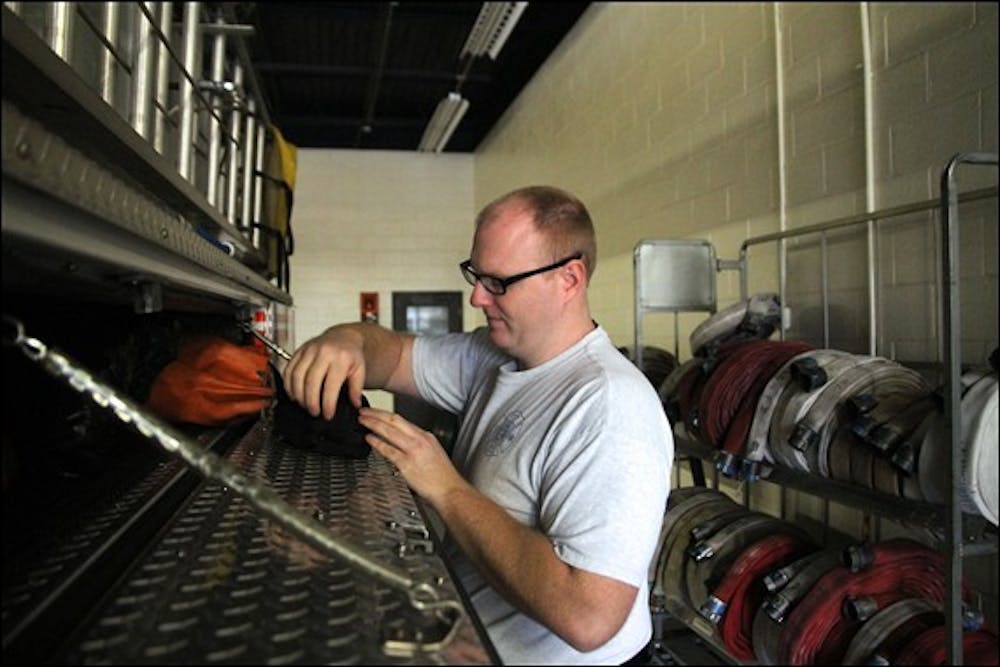False alarms from Elon University continue to place a bind on the town of Elon's fire response resources.
Any time Elon students pull a fire alarm or set off the smoke detectors by burning their dinners, the Town of Elon pulls out the cash register.
According to Eddie King, fire chief for the town of Elon, the combined cost of personnel and vehicles is $575 per false alarm.
"There's no such thing as a free response to anything," King said. "We're using fuel, wear and tear on the vehicles and man-hours."
One recent incident at the Crest Apartments showed how the line between harmless cooking accidents and dangerous fires is blurred.
According to the fire department, students cooking doughnuts led to a vat of grease causing a fire.
The fire was extinguished by the apartment's sprinkler system and the apartment had more water damage than fire damage. This incident is one of the few actual emergencies the department has responded to at the university.
"As far as I know, we responded quickly and responded properly," said Scott Jean, chief of security.
At least 95 percent of the fire department's response is to the university, King said, and roughly 2 percent of the calls are legitimate emergencies.
Regardless, the fire department has to respond as if the alarm is an emergency. King said the false alarms wear down the morale and speed of the firemen.
"They get complacent," he said. "It makes a lot of volunteers wait and see what happens."
King said that it is good practice and helps the firemen stay on their toes.
"The only thing that is positive is it keeps our guys active and it keeps them in a more ready mood," he said. "But the cost of that doesn't really even out."
It takes 17 firefighters to respond to a fire. That number includes drivers, officers and volunteers.
At nights and on weekends, there is only one paid fireman at each station. Volunteers are used to supplement when available and when the alarm is sounded, the department is out of the station within a minute.
When the alarm is sounded from Elon's campus, Campus Safety and Police dispatches a responder to the scene and calls 911 to alert Alamance County Communications, who then dispatches the appropriate resources.
The university reports all alarms to 911 and does no screening in the process.
"We automatically have to call 911 even if it is steam from a shower," Jean said.
What bothers King the most about the false alarms isn't the hassle or the cost, but the risk.
"The thing about being fire chief that I have to be concerned about is the safety of our personnel," he said. "They're putting their lives in danger, but our job is to respond as if the alarms are emergencies. There have been firemen killed on their way to false alarms."
King said the city has communicated with the university and encouraged it to take action in reducing the false alarms.
"If they can give a course on how to operate a microwave, that may be what they need to do," he said. "Other municipalities have a fine on repeated alarms. We haven't gone to that yet."
The incident at the Crest was different, according to Jean, because it is a leased apartment complex and the fire alarms are managed by an outside company meaning the alarm didn't come there first. "You can't keep letting your dog bark and keep people up," King said. "You can't let these fire alarms get out of whack."
Jean said he would rather have false alarms than poor responses.
"It's better to be sensitive than not enough and better to be safe than sorry," he said.


